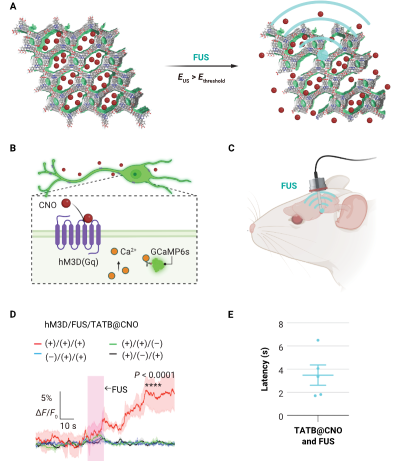Dr. Huiliang Wang, an assitant professor in Biomedical Engineering and an affiliate of Texas Materials Institute, was a finalist for the 2025 Science & PINS Prize for Neuromodulation.
The Science & PINS Prize, eestablished in 2016, recognizes researchers in the field of neuromodulation. Administered by Science, the prizes is awarded to scientists who "conduct research at the intersection between engineering and clinical neurology to develop innovative neuromodulation approaches to advance our understanding of human health and disease or to guide therapeutic interventions."
As the runner-up, Wang had his article, "Rapid deep brain chemogenetics: Minimally invasive, genetically targeted deep brain stimulation is achieved using ultrasound-activated nanocrystals," published online in Science.

In his article, Wang develops new technique called sono-chemogenetics to improve brain disease treatments by combining the precision of genetic targeting with the noninvasiveness of ultrasound. Traditional methods like deep brain stimulation and optogenetics have limitations, such as invasiveness or safety concerns. Sono-chemogenetics uses specially designed nanocrystals that release a drug (CNO) when activated by ultrasound, which then stimulates genetically engineered receptors in specific neurons. This approach enables rapid, targeted brain modulation without surgery. In experiments with mice and rats, it successfully activated deep brain regions and influenced behavior, showing promise for future clinical applications in humans.
Read more of his research online at Science.

